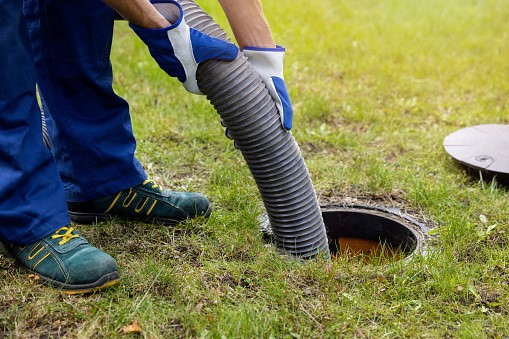A properly functioning septic tank is essential for safely treating and disposing wastewater. One of the most important ways to maintain your septic tank is to pump it regularly. Do you know how often to pump your septic tank? Learn the pumping schedule professionals recommend, warning signs that your tank is full, the importance of professional septic tank pumping services, and the advantages of prioritizing this maintenance task.
How Often Should a Septic Tank Be Pumped?
The recommended frequency of septic tank pumping depends on various factors, including the size of the tank, the number of people in the household, and the volume of wastewater generated. According to the Environmental Protection Agency (EPA), septic tanks should be pumped every three to five years, adjusting the specific pumping frequency based on your unique circumstances.
Consult a professional for help determining the appropriate pumping schedule for your tank. These experts can assess your tank’s capacity and usage, ensuring that your septic system remains in good working condition with less need for emergency pumping and repairs.
Can You Wait Longer to Pump Out Septic Tanks?
While it may be tempting to put off septic tank pumping to save money, waiting too long can lead to significant problems. Over time, solids accumulate in the septic tank, which can cause the system to work inefficiently and, ultimately, fail. This can result in costly repairs or even needing to replace the entire system. Simply following the recommended pumping schedule for your septic tank is enough to prevent these costly and inconvenient issues, making preventative maintenance a worthwhile investment.
Warning Signs of a Full Septic Tank
Keep an eye out for warning signs that your septic tank needs pumping so you can address issues before they become outright emergencies. Some common signs that your septic tank is nearing capacity include:
- Slow-draining sinks, bathtubs, and toilets: If your drains are slow to empty, it could indicate that your septic tank is full and backing up into the pipes. Pumping the tank should resolve the issue before it escalates any further.
- Unpleasant odors: Foul sewage smells wafting up from your drains and toilets clearly indicate that your tank is full and requires pumping. Heed unpleasant odors near the buried septic tank as well, which could warn you of sewage leaks in the drain field.
- Standing water or damp spots near the septic tank: Along with a smelly drain field, you may notice areas with standing water, even if it hasn’t rained recently. This could mean the tank is overflowing and wastewater is seeping into the surrounding soil.
- Sewage backup: If wastewater backs up into your home, you can bet your septic tank is full and needs immediate attention. The goal is to keep up with septic tank maintenance so this never happens.
Importance of Professional Septic Tank Pumping
When the time comes to pump your septic tank, hiring a professional is essential. Experienced technicians have the necessary equipment and training to ensure your septic tank is pumped correctly and safely. Along with this service, professionals can inspect your tank for potential issues, such as leaks or damage, and recommend appropriate maintenance to prevent costly repairs or system failures.
Advantages of Regular Pumping of Septic Tanks
Homeowners with septic tanks on their property benefit in several ways from routine pumping services:
- Prevent system failure: Regular pumping stops the excessive buildup of solids in your tank, reducing the risk of system backups and failure.
- Protect the environment: Properly maintained septic systems prevent groundwater contamination, preserving public health and protecting the environment. Professionals also dispose of waste material in an approved location to ensure eco-friendly services.
- Save money: Regular maintenance is a predictable, affordable cost that helps you avoid more expensive repairs and premature system replacements caused by septic tank failure.
- Extend the life of your septic system: On average, septic tanks last 20 to 40 years. Regular pumping and maintenance between professional inspections can significantly prolong your septic system’s lifespan. This ensures the tank and associated plumbing operate efficiently for years to come.
- Preserve property value: A well-maintained septic system is important in maintaining your property value and making your home more attractive to potential buyers if you decide to sell.
Schedule Septic Tank Pumping Services in San Francisco
Trinity Liquid Waste is a trusted provider of septic tank pumping services in the San Francisco Bay Area. With over 25 years of experience, our team is dedicated to providing exceptional service and expertise to meet all your septic system needs. Don’t wait until you see signs of a full septic tank—contact us today at 510-874-6489 to schedule septic tank pumping and maintain the health of your home’s plumbing system.

